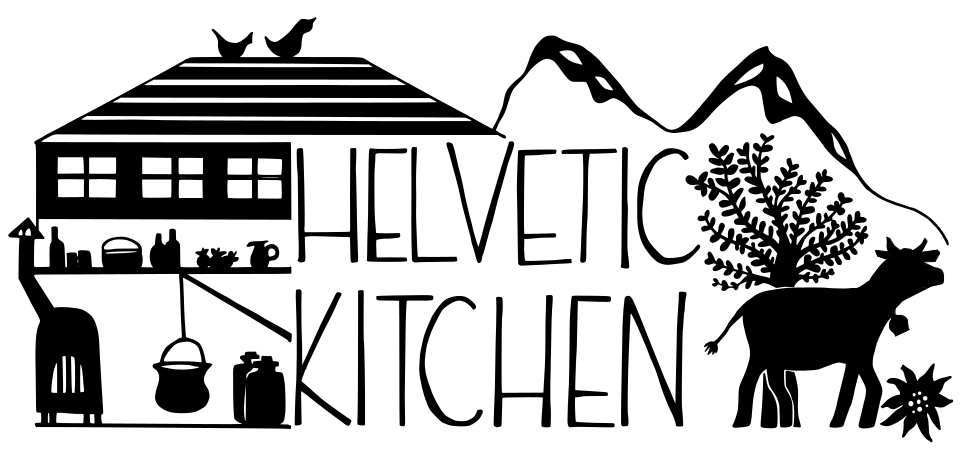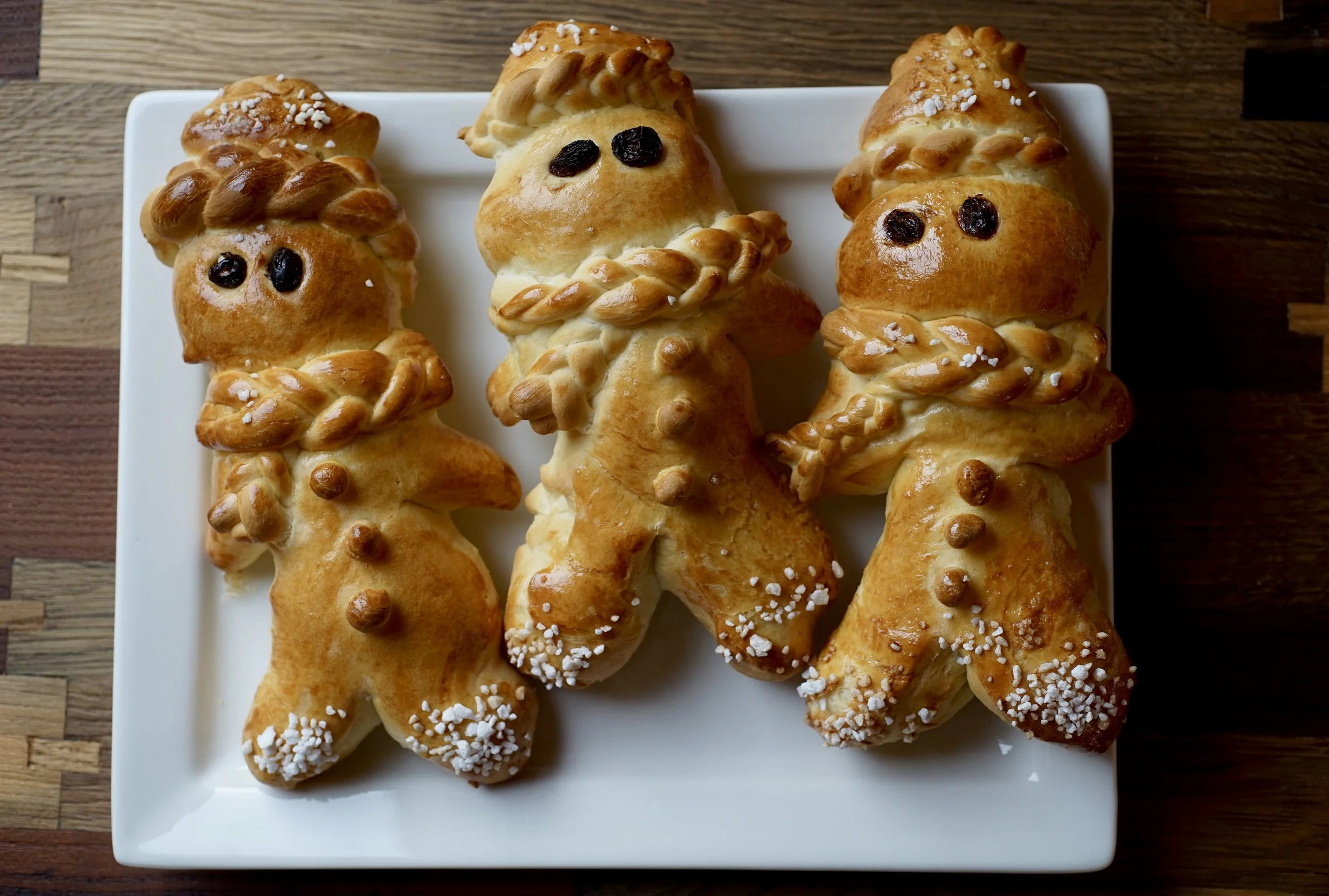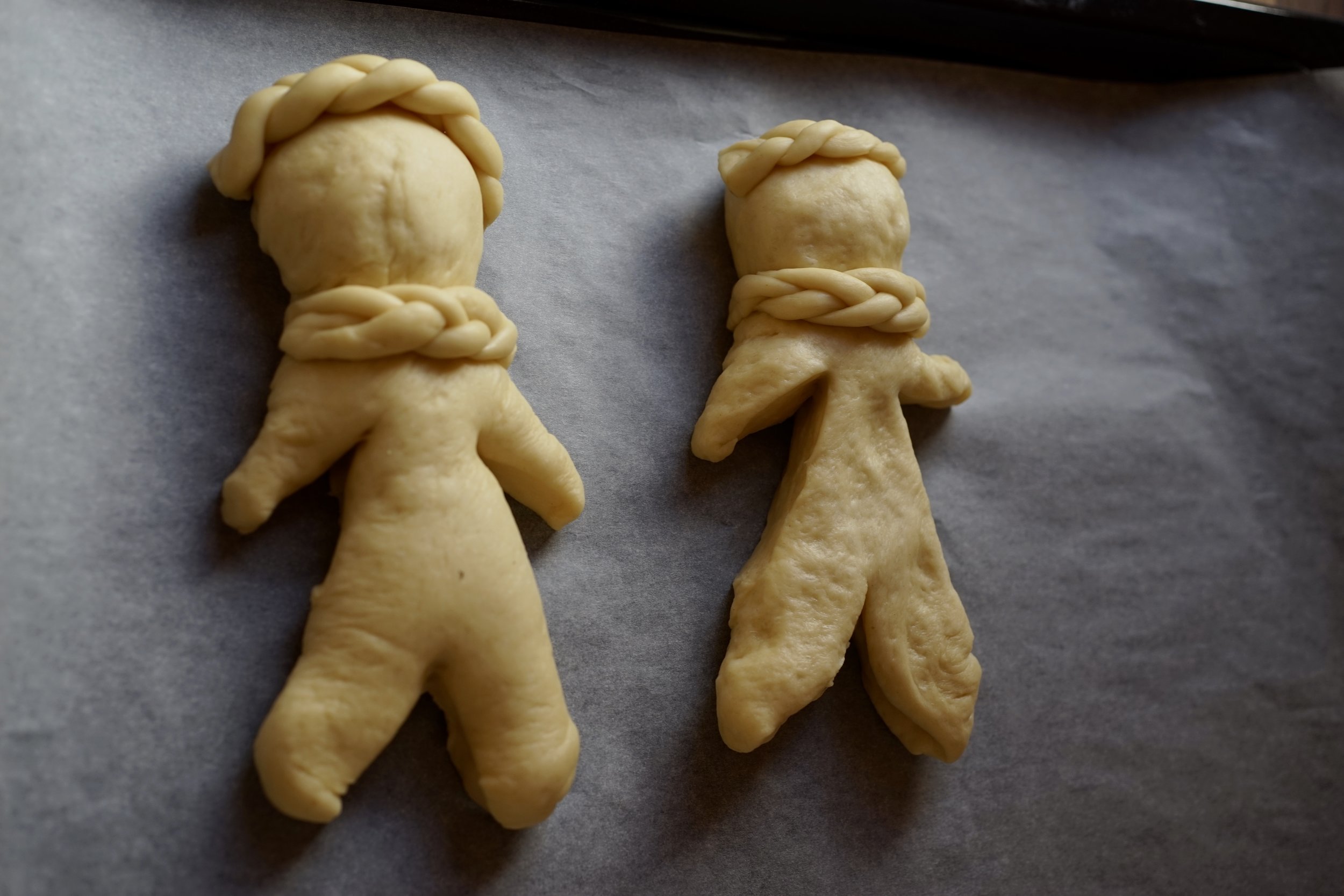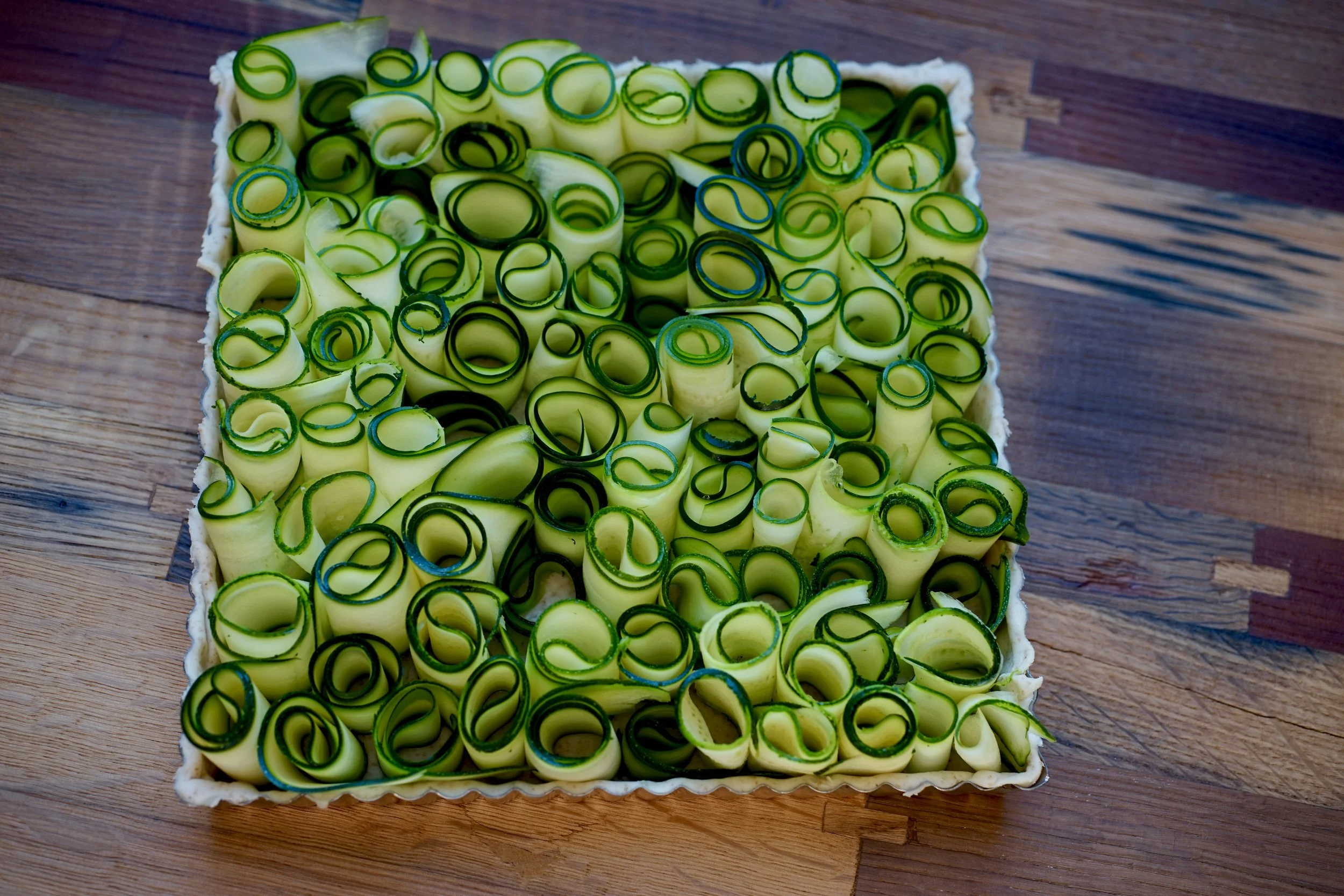Grittibänz
Switzerland, like many parts of Europe, celebrates the 6th of December, St Nicholas Day. Here, Samichlaus and helper Schmutzli visit children, quiz them on their behaviour, and leave the good ones a sack full of goodies. More on that here.
Grittibänz, sweet doughy bread boys, are the featured baked good to go along with Samichlaus Day.
So, why are they called Grittibänz?
According to the Schweizer Idiotikon, the seminal resource on the Swiss-German language, Grittibänz (or Grättimaa in Basler dialect) traces back to the 1800s and is a mix of two distinct words.
"Gritti", comes from the high German "grätschen" which translates as "splayed" or "straddled", describing the form of the legs. "Bänz" was a short form of the common 1800s name Benedict and was used as a stand-in name to describe any man, like the name Jack in English.
Other name variations exist in different regional dialects, notably Elggermaa named after the town Elgg in Winterthur.
The Bänz are made from an enriched yeast dough, often the same that is used to make Zopf, Switzerland's favourite bread.
Typically they are decorated with raisins and Hagelzucker (pearl sugar), and they tote a pipe, a bundle of sticks, or sometimes a Schoggistängeli.
This is my updated Zopf dough—since moving to the Emmental I leave out the yolk and add a bit more butter.
Dough
500 g flour
12 g salt
250 ml milk, room temperature
20 g fresh yeast or 2 tsp dry yeast
1 tbsp sugar
100 g butter, soft
Decorations and Glaze
raisins and Hagelzucker (pearl sugar)
1 egg
a pinch of salt
In a large bowl, whisk together the flour and salt.
In another bowl, whisk together the milk, yeast, and sugar.
Make a well in the flour and add the liquid ingredients. Stir this together until a dough starts to form, then add the butter and begin to knead it on the table. Knead for about 15-20 minutes, or until it is smooth and elastic. Alternatively, mix for about 10 minutes in a stand mixer with a dough hook.
Cover and let rise for about an hour or until the dough has doubled in size.
Preheat your oven to 190° C / 375° F / gas mark 5.
Split the dough into six pieces, around 150 g each. Five will be for your Bänz, and the sixth can be used for decorations. Roll the dough into logs, then cut the arms out and the legs apart, forming it into the shape of a dough boy (see illustration below).
Use the remaining dough to fashion buttons, hats, scarves, boots—whatever you fancy. Place these, as well as your raisins, on your Bänz.
Place the Bänz on your baking sheet and let them rest for about 20 minutes.
Whisk together the egg and salt, then brush the dough. It's best to add Hagelzucker now, so that it will stick to the egg wash.
Bake for about 20-30 minutes or until they are golden and sound hollow when you tap their bottoms.
To decorate, I like to make numerous braids from the remaining dough and use this for scarves and belts.
The raisins can also be used as buttons on your Grittibänz coats.
Recipe updated December 2022.
Too many leftovers?
Samichlaus Bars













